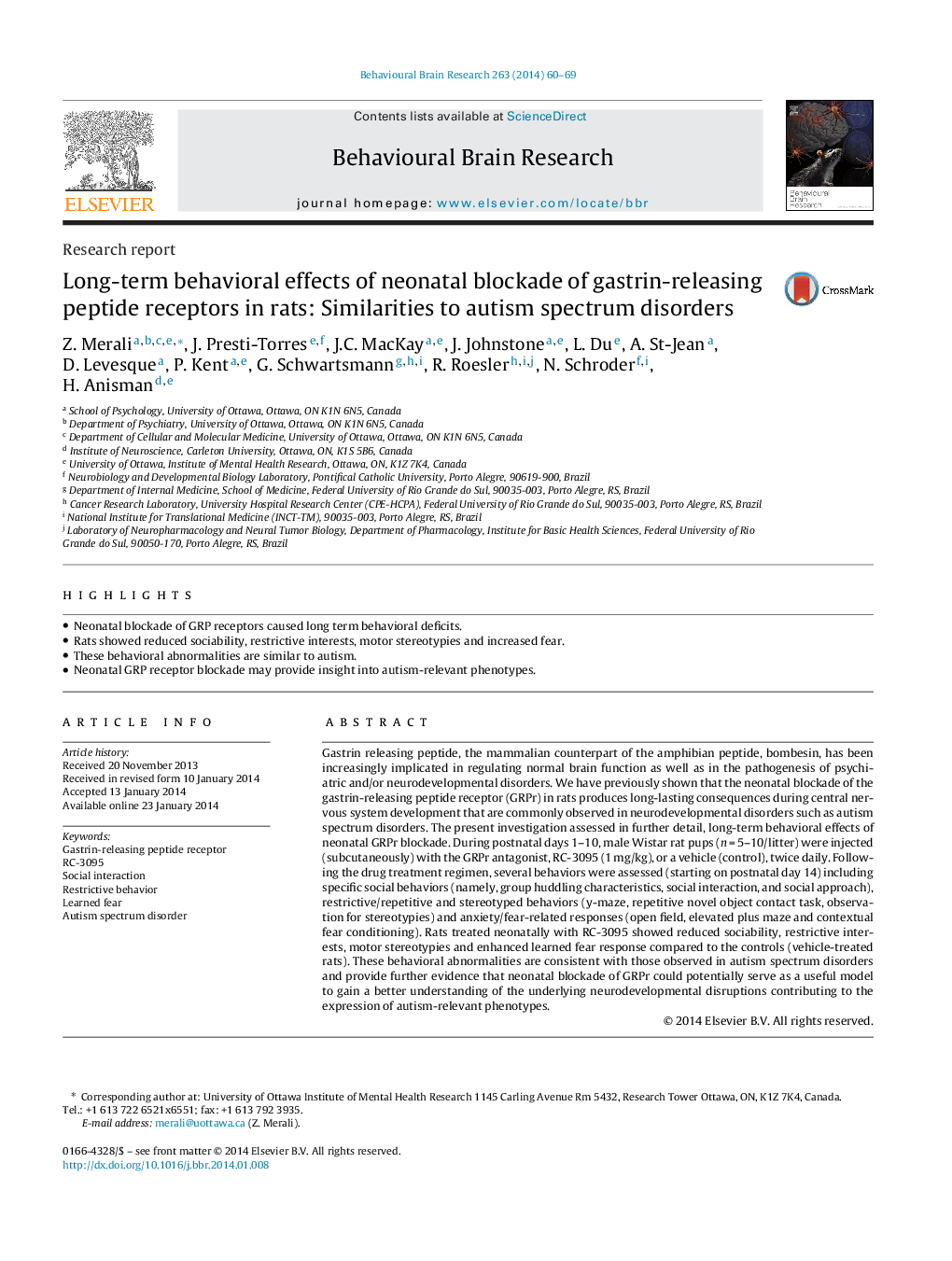| کد مقاله | کد نشریه | سال انتشار | مقاله انگلیسی | نسخه تمام متن |
|---|---|---|---|---|
| 6258139 | 1612969 | 2014 | 10 صفحه PDF | دانلود رایگان |
- Neonatal blockade of GRP receptors caused long term behavioral deficits.
- Rats showed reduced sociability, restrictive interests, motor stereotypies and increased fear.
- These behavioral abnormalities are similar to autism.
- Neonatal GRP receptor blockade may provide insight into autism-relevant phenotypes.
Gastrin releasing peptide, the mammalian counterpart of the amphibian peptide, bombesin, has been increasingly implicated in regulating normal brain function as well as in the pathogenesis of psychiatric and/or neurodevelopmental disorders. We have previously shown that the neonatal blockade of the gastrin-releasing peptide receptor (GRPr) in rats produces long-lasting consequences during central nervous system development that are commonly observed in neurodevelopmental disorders such as autism spectrum disorders. The present investigation assessed in further detail, long-term behavioral effects of neonatal GRPr blockade. During postnatal days 1-10, male Wistar rat pups (n = 5-10/litter) were injected (subcutaneously) with the GRPr antagonist, RC-3095 (1 mg/kg), or a vehicle (control), twice daily. Following the drug treatment regimen, several behaviors were assessed (starting on postnatal day 14) including specific social behaviors (namely, group huddling characteristics, social interaction, and social approach), restrictive/repetitive and stereotyped behaviors (y-maze, repetitive novel object contact task, observation for stereotypies) and anxiety/fear-related responses (open field, elevated plus maze and contextual fear conditioning). Rats treated neonatally with RC-3095 showed reduced sociability, restrictive interests, motor stereotypies and enhanced learned fear response compared to the controls (vehicle-treated rats). These behavioral abnormalities are consistent with those observed in autism spectrum disorders and provide further evidence that neonatal blockade of GRPr could potentially serve as a useful model to gain a better understanding of the underlying neurodevelopmental disruptions contributing to the expression of autism-relevant phenotypes.
Journal: Behavioural Brain Research - Volume 263, 15 April 2014, Pages 60-69
